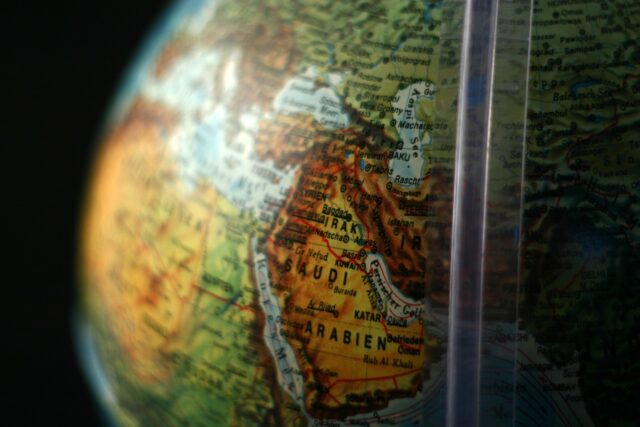Riyadh-Tehran reconciliation sponsored by Beijing, what next?

Persian Files ISSN 2975-0598 Volume 12 Issue 1
Author: Habib Al-Badawi
Iran and Saudi Arabia, longtime regional rivals, have agreed to resume friendly diplomatic relations and reopen their embassies after Chinese-led negotiations in Beijing. The two governments announced the agreement via their respective state media agencies and China’s Xinhua News Agency.
In addition to restoring diplomatic relations, the two countries also agreed to affirm “respect for the sovereignty of states and non-interference in the internal affairs of states” and to revive previous cooperation agreements from 1998 and 2001.
The Saudi-Iranian rapprochement
The Saudi delegation was headed by Minister of State and National Security Adviser Musaed bin Mohammed al-Aiban, while the Iranian delegation was headed by Rear Admiral Ali Shamkhani, secretary of the Supreme National Security Council.
According to a trilateral statement released by China, Saudi Arabia, and Iran, the event will be held in Beijing from March 6 to 10. Saudi Arabia and Iran have held talks to resolve their differences through dialogue and diplomatic means. It also adheres to the purposes and principles of the United Nations and OIC Charter.
Saudi Arabia and Iran expressed their appreciation to Iraq and Oman for hosting multiple rounds of dialogue between 2021 and 2022. They also thanked Chinese leaders and the Chinese government for hosting, supporting, and contributing to the success of the talks. It was noted that Chinese President Xi Jinping has been instrumental in hosting and sponsoring these talks.
The White House has supported the deal between Iran and Saudi Arabia, noting that it supports any effort to de-escalate regional tensions. National Security Council spokesman John Kirby said whether Iran would meet its commitments remained to be seen. The U.S. position is to see the war in Yemen end, which could be more likely to happen given Friday’s agreement.
Other countries in the region have welcomed the development. The agreement signals a shift in influence in the region, where China is now taking a more active role in mediation and diplomacy. As a result of the agreement, China has assumed a more active role in political interference in the region, despite the delicate nature of the region.
Saudi Arabia-Iran’s agreement and Middle Eastern geopolitics
This agreement between Iran and Saudi Arabia is good news for the Middle East. In contrast, it argues that China has strengthened its regional role with an innovative strategy that challenges traditional U.S. influence. The role of “mediator” is seen as a significant diplomatic victory for Beijing.
This diplomatic understanding is beneficial to Tehran in many ways. First, it will open the door to more trade between the two countries, which could boost Iran’s economy. Second, it will reduce tensions between the two countries and pave the way for more dialogue and cooperation on regional issues.
Finally, this could lead to increased regional stability, which would benefit the entire region. For Riyadh, it will mean more trade between the two countries, potentially boosting the Saudi economy. It will also reduce tensions and pave the way for greater dialogue and cooperation on regional issues, especially the thorny issue of Yemen. Mutual understanding could ultimately increase regional stability, benefiting the entire region.
Beijing, the sponsor of the agreement, is the biggest beneficiary in many ways. In the first place, it shows China’s growing diplomatic influence in the Middle East and its ability to mediate complex disputes. Second, it could lead to increased trade between China and both Iran and Saudi Arabia, which could be beneficial to China’s globally dominant economy.
Lebanon was not mentioned in the Iran-Saudi deal. However, the agreement has implications for the country, as it signals a potential shift in regional dynamics that could positively impact internal tensions.
Any agreement to restore diplomatic relations and non-interference in each other’s internal affairs could improve diplomatic relations between Iran and Saudi Arabia and enhance ties with other Middle Eastern countries, including Lebanon. As a result, the Lebanese government would be more stable, and the economy’s collapse would be prevented. In addition, the agreement could provide a platform for regional talks and negotiations that could help resolve various regional conflicts, which could benefit Lebanon.
This agreement is a positive step forward for the Middle East. It signals a shift in regional dynamics and could lead to increased regional stability. It is encouraging to see that China could play a role in mediating the dispute and that both sides were willing to reach an agreement. The agreement represents an opportunity for Lebanon to benefit from increased regional stability and improved diplomatic relations.
In conclusion, Tehran and Riyadh are at a compelling peace under Beijing’s guidance. Washington is departed, Moscow is delighted, while Tokyo is in awe of all these regional and international developments.
Disclaimer. The views and opinions expressed in this report are those of the author and do not necessarily reflect the official policy or position of SpecialEurasia.
Do you like SpecialEurasia reports and analyses? Has our groundbreaking research empowered you or your team? Now is your chance to be a part of our mission! Join us in advancing independent reporting and unlocking the secrets of Eurasia’s complex geopolitical landscape. Whether through a one-time contribution or a monthly/yearly donation, your support will fuel our relentless pursuit of knowledge and understanding. Together, let’s pave the way for a brighter future. DONATE NOW and secure your place in shaping the geopolitical narrative.
